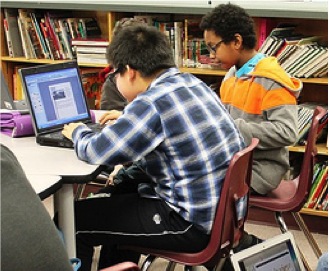-
Advocacy Theme
-
Tags
- Abortion
- Adoption
- Caregiving
- CEDAW
- Disability
- Domestic Violence
- Domestic Workers
- Harassment
- Healthcare
- Housing
- International/Regional Work
- Maintenance
- Media
- Migrant Spouses
- Migrant Workers
- Muslim Law
- National budget
- Parental Leave
- Parenthood
- Polygamy
- Population
- Race and religion
- Sexual Violence
- Sexuality Education
- Single Parents
- Social Support
- Sterilisation
- Women's Charter
A teen’s-eye view of cyber-bullying
January 22nd, 2014 | Children and Young People, News, Views
By Ian Mak Wei, 19, AWARE intern
Singapore is topping the charts again – in cyber bullying. A whopping 58%* of youths have been bullied online, the second highest in the world behind China. As a teenager myself, this statistic does not surprise me.
 The Internet is probably the best invention of the 20th century, but it is also a place where the most nasty and vicious bullying takes place. Bullying that leaves permanent records – whether electronic or psychological.
The Internet is probably the best invention of the 20th century, but it is also a place where the most nasty and vicious bullying takes place. Bullying that leaves permanent records – whether electronic or psychological.
Much of this takes place on social media platforms. Ask.fm, for example, allows users to ask one another questions, including anonymously. It seems to enable sharing, banter and casual enjoyment, but it has been hijacked by trolls armed with demeaning comments. ‘You’re fat’ and ‘No one likes you’ are often their weapons to break others down.
The Internet can bring out the worst in us, especially teenagers with pent up angst. The cloak of anonymity and easy platform to ‘flame’ remove accountability, sometimes changing the mildest of people into terrible, insulting bullies.
There is a strong gendered dimension to cyber bullying. Teenage girls are subject to especial amounts of ‘fat-shaming’ and ‘looks-shaming’ from peers, making them uncomfortable about their appearance. Girls are bombarded with messages about the importance of having an hourglass figure or small waistline, and bullies on the internet have an easy avenue to exploit the resulting insecurities.
Similarly, teenage boys who do not live up to rigid societal expectations of masculinity are labeled ‘pussies’ and subject to verbal abuse, such as in the case of Theo Chen, a 12-year-old student subjected to gay bashing from classmates.
We often forget the effect of our actions on others. In a fit of rage, we say mean things – and since we’re not speaking face to face, we stick the knife in deeper.
A single comment can snowball into an entire group piling on to ostracise a person. Especially in the fragile and turbulent teenage years, this often hurts self esteem and even leads to self-harm including suicide.
Let’s make a commitment to not become the bully. Let’s refuse to spread hateful, baseless rumors. More than that, let us have the courage to intervene to halt cyber bullying as it happens to others. Only then can the Internet become a safe place where people are free to explore and express themselves, without fear of derision and harassment.
*Microsoft’s Trustworthy Computing unit study in 2013
An edited version of this letter was published in the Straits Times’ Youth Forum on 22 Jan 2014.



